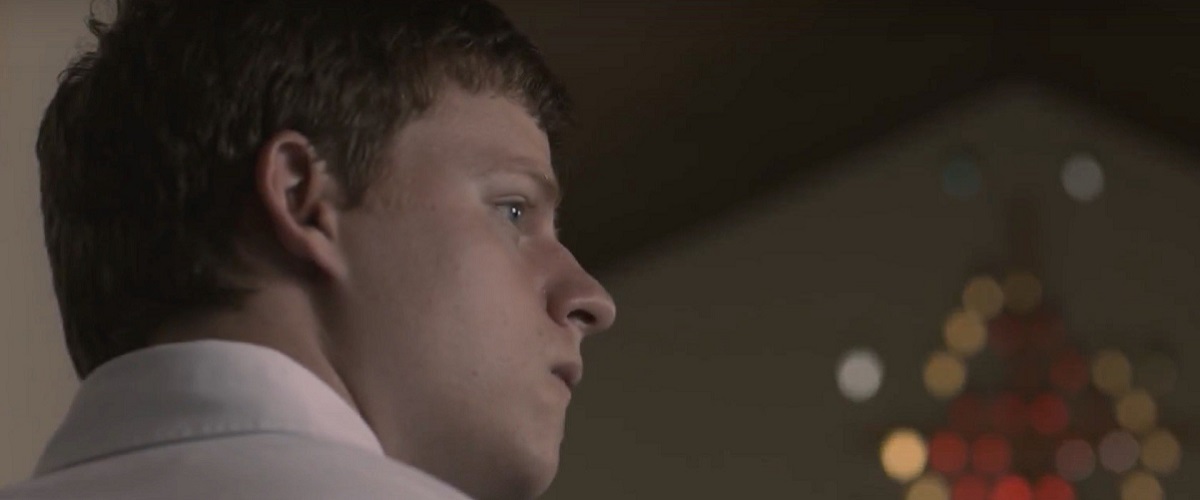OnScreen Review: "Boy Erased"
Ken Jones
Chief Film Critic
Hollywood has long had this habit of studios putting out twin movies, films that have a similar theme within the same year or months apart from each other. Armageddon and Deep Impact, Mission To Mars and Red Planet, Girls Trip and Rough Night, This Is the End and The World’s End, the list goes on and on. This year, we’ve gotten twin movies out of adaptations of stories about gay conversion therapy. The Miseducation of Cameron Post was released late this summer, an adaptation of a novel.
Boy Erased, however, is based on a memoir set in the mid-2000s (based on the cellphones being used). It opens with Jared Eamons (Lucas Hedges) preparing to leave his home to attend a Love In Action gay conversion program. The program is run by Victor (director Joel Edgerton), himself a professed ex-gay convert. Jared is committed to seeing the program through, if for no other reason than for the sake of his parents, Marshall and Nancy Eamons (Russell Crowe and Nicole Kidman), as his father is a Baptist preacher. However, as the days pass, Jared begins to question the program and what he wants.
The film is structured so that Jared reflects back on his past experiences as he is going through homework for the program: the stereotypical "normal" high school life, active in sports and dating a cheerleader; a freshman year sexual encounter gone wrong; coming out to his parents and praying with elders in his church; and a night with someone that is kind and tender when he needs it.
The Love In Action program he enters into definitely has the feel of a religious attempt to make sense of a messy, complex world. Victor and some of his assistants attempt many ham-fisted methods to try and get rid of the gay in these teens. “Fake it until you make it” is uttered at least once. Tracing sinful traits in family trees are explored. In one scene, after one of them has a “relapse” a mock funeral is held for him and his family member come and physically hit him with a Bible to cast it out of him.
As a Christian who grew up through church all my life, some of these scenes are a tough watch. Being familiar with the Christian culture Jared and the others are immersed in, I know that for at least some of these people what they are doing is well-intentioned, but it also naïve and horribly misguided. I’ve long struggled with the Church’s position on homosexuality. My mindset has changed dramatically from where I was on the matter 20 years ago and is still a work in progress. More importantly though, what films like this affirm for me is that the Church was not properly equipped to address the matter of faith and homosexuality and hurt a lot of people in the process. A lot more love and grace was needed than was shown.
Lucas Hedges is a very promising young actor and gives a subdued and measured performance here. Nicole Kidman is also a strong standout as Jared’s mother, dropping him off and picking him up every day while staying at a nearby hotel, in a precarious position between her husband and her son. Of the three biggest actors, Crowe has the least amount of screen time because of the increasing distance between father and son as the film progresses.
The film devotes a fair amount of time to Jared figuring out his sexuality and what it all means for him and eventually coming to a decision about the Love In Action program. I do wish that the film had given more of a glimpse into the spiritual struggle he was experiencing because of everything he goes through. Does he have doubts? Where was he as a believer before all of this happened? What impact did his father’s threat to disown him have? What impact did the program have on him in that regard? This largely goes unexplored, but given that he is a preacher’s kid, it seems somewhat relevant to the character and his growth and development.
In the numerous instances when there are twin movies released dealing with similar themes it seems that often one seems to be regarded as significantly better than the other. In the case of The Miseducation of Cameron Post and Boy Erased, both are actually quite good and worth seeing, approaching a difficult subject from different perspectives and with distinct voices. Boy Erased shines a light on what should be looked back on as a reckless and misguided practice by some in the Church that did a lot of harm to some people. One of the closing moments of the film has a scene with Jared telling his father that he has written about his experience and may even write a book (the eventual memoir), and he says, “You don’t need to read any of it… but it might be good for you to read, because you never really asked what went on there.” That’s a message worth taking to heart.
Rating: 3.5 out of 5 stars
